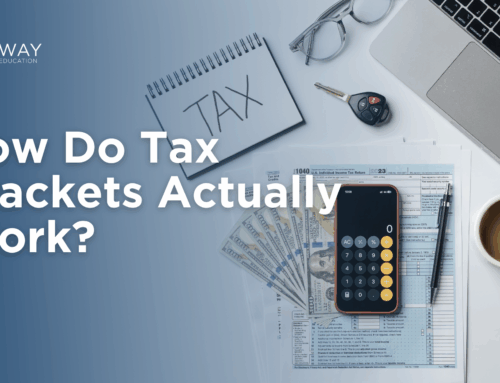Purchasing your first home is an exhilarating milestone, marking a significant step towards financial independence and stability. However, the journey from renting to owning involves more than just securing a mortgage. Many first-time homebuyers are caught off guard by the hidden costs of homeownership that can strain their finances if not properly anticipated and planned for. To maintain financial wellness and make smart money decisions, it’s crucial to be aware of these expenses and integrate them into your personal financial planning.
1. Closing Costs
While securing a mortgage is the primary financial hurdle, the process of finalizing your home purchase comes with its own set of expenses known as closing costs. These can range from 2% to 5% of the home’s purchase price and include:
- Loan Origination Fees: Charges by the lender for processing your loan application.
- Appraisal Fees: Costs for a professional assessment of the home’s value.
- Title Insurance: Protects against potential issues with the property title.
- Inspection Fees: Covers home inspection to identify any potential problems.
- Attorney Fees: Legal services required for closing.
To avoid surprises, request a detailed list of these expenses from your lender early in the process and set aside funds accordingly.
2. Property Taxes
Property taxes are a significant ongoing expense that varies based on your home’s value and local tax rates. These taxes fund community services such as schools, road maintenance, and public safety. It’s essential to:
- Research Local Rates: Understand the property tax rate in your desired area.
- Budget Accordingly: Plan for annual increases and incorporate this into your monthly expenses.
- Consider Escrow Accounts: Many lenders require property taxes to be paid into an escrow account, spreading the cost over monthly mortgage payments.
By including property taxes in your personal financial planning, you can avoid the shock of a hefty annual bill.
3. Homeowners Insurance
Protecting your investment with homeowners insurance is non-negotiable. This policy covers damages to your home and possessions due to disasters, theft, and accidents. Key factors to consider include:
- Coverage Needs: Ensure your policy covers the full replacement cost of your home and belongings.
- Deductibles: Choose a deductible you can comfortably afford in case of a claim.
- Additional Coverage: Consider add-ons for flood or earthquake coverage if you’re in a susceptible area.
Regularly review and update your policy to ensure it aligns with the current value of your home and possessions.
4. Utilities
Transitioning from renting to owning often results in higher utility costs. Homeowners are responsible for all utilities, including:
- Electricity and Gas: Heating, cooling, and powering your home.
- Water and Sewer: Water usage and waste management.
- Trash Collection: Garbage and recycling services.
- Internet and Cable: Connecting your home to essential services.
Review past utility bills for similar-sized homes in your area to estimate these costs and adjust your budget accordingly.
5. Furniture and Appliances
Furnishing a new home is another expense that can add up quickly. Essentials like sofas, beds, and dining sets, along with appliances such as refrigerators and washing machines, are necessary. Strategies to manage these costs include:
- Secondhand Options: Consider purchasing gently used items.
- Sales and Discounts: Take advantage of sales and store promotions.
- Gradual Purchases: Spread out your purchases over time to avoid a large upfront cost.
Prioritizing your needs and making thoughtful purchases can help you furnish your home without breaking the bank.
6. Maintenance and Repairs
Maintaining your home’s condition is an ongoing responsibility that incurs various costs. Regular maintenance tasks include:
- Landscaping: Lawn care, tree trimming, and gardening.
- Seasonal Maintenance: HVAC system servicing, gutter cleaning, and roof inspections.
- Pest Control: Regular treatments to prevent infestations.
Unexpected repairs can also arise, such as fixing a leaky roof or replacing a malfunctioning HVAC system, can also arise. Setting aside 1% to 3% of your home’s value annually in a maintenance fund can help you cover these costs without derailing your budget.
7. Renovations and Upgrades
Personalizing your new home often involves renovations and upgrades. Whether it’s updating the kitchen, adding a bathroom, or enhancing the backyard, these projects come with substantial costs. Tips to manage these expenses include:
- Budgeting Wisely: Set a realistic budget for each project.
- DIY vs. Professional Help: Determine which tasks you can handle yourself and which require professional assistance.
- Prioritizing Projects: Focus on essential upgrades first and plan for others over time.
By planning and prioritizing, you can gradually enhance your home without overwhelming your finances.
Personal Financial Planning for Homeowners
Maintaining financial wellness as a homeowner requires diligent personal financial planning. Here are some tips to manage the additional expenses effectively:
Create a Detailed Budget
A comprehensive budget helps track your income and expenses, ensuring you can cover both expected and unexpected costs. Include:
- Mortgage Payment: Principal, interest, property taxes, and insurance.
- Utilities: Estimated monthly costs.
- Maintenance and Repairs: Regular and emergency funds.
Regularly update your budget to reflect changes in your financial situation and expenses.
Build an Emergency Fund
Despite careful planning, emergencies happen. Creating an emergency fund specifically for your home can provide peace of mind. This fund can cover:
- Major Repairs: Unexpected and costly repairs like plumbing issues or structural damage.
- Natural Disasters: Expenses not fully covered by insurance.
- Temporary Housing: Costs of temporary accommodation if your home becomes uninhabitable.
Aim to save three to six months’ worth of living expenses in an easily accessible account to safeguard against unforeseen events. Regularly contribute to your emergency fund to maintain financial security.
Review Insurance Policies
Regularly review and update your homeowner’s insurance policy to ensure it provides adequate coverage. Consider:
- Riders and Endorsements: For high-value items or specific risks.
- Shop Around: Compare policies and premiums from different providers to ensure you’re getting the best value.
Plan for Future Expenses
Think long-term when it comes to homeownership costs. Plan for:
- Property Value Increases: Higher property taxes.
- Aging Systems: Replacement of major systems like the roof, HVAC, and plumbing.
- Lifestyle Changes: Family growth, work-from-home needs, or aging in place.
By anticipating future expenses, you can make informed financial decisions and avoid surprises.
Pathway Financial Education: Your Partner in Homeownership
Owning a home is a rewarding experience, but it’s essential to be prepared for the hidden costs that come with it. By understanding and planning expenses such as closing costs, property taxes, insurance, maintenance, utilities, renovations, and emergencies, first-time buyers can maintain financial wellness and make smart money decisions. Integrating these costs into your personal financial planning ensures that you can enjoy the benefits of homeownership without compromising your financial stability. Remember, thorough preparation and proactive management of your finances are key to a successful and stress-free homeownership journey.
At Pathway Financial Education, we understand the challenges first-time homebuyers face and are committed to providing the resources and support you need to navigate the hidden costs of homeownership. Our comprehensive financial training and education programs are designed to help you achieve financial wellness and make smart money decisions.
We offer free workshops, one-on-one financial coaching, and a wealth of online resources to guide you through every step of the homeownership process. From budgeting and saving to understanding mortgages and managing ongoing expenses, Pathway is here to ensure you have the knowledge and tools necessary for successful homeownership.
Ready to take control of your financial future? Contact Pathway Financial Education today to learn more about our free programs and resources that can help you on your path to homeownership and financial wellness. Visit our website to get started!




